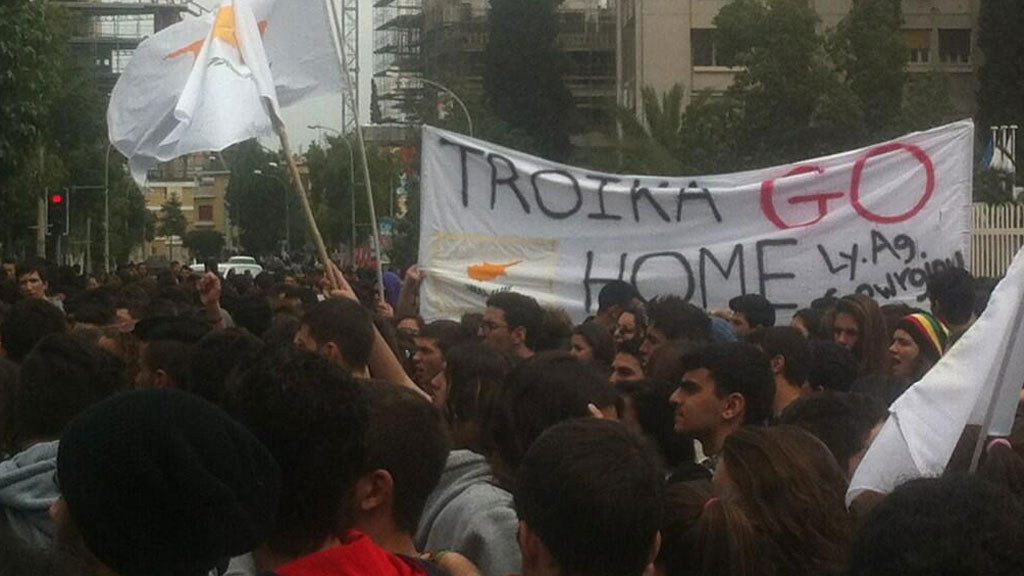Schoolchildren protest over Cyprus bailout
Thousands of schoolchildren take to the streets of Nicosia to demonstrate against the terms of an international bailout for Cyprus. Faisal Islam reports from Cyprus.
Channel 4 News Economics Editor Faisal Islam, who is in the Cypriot capital, saw children as young as 11 or 12 at the demonstration, although most were over 15.
They waved banners and chanted: “Troika go home” and “Your mistakes, our future.”
Faisal Islam tweeted: “Astonishing scenes in Nicosia. 1000s (all?) schoolchildren left classes burst on to streets to chant against Troika.
“In Argentina it was housewives with their pots & pans coming on to streets, in Cyprus could it be teenage schoolkids with wrecked futures?”

The troika – the European Union, European Central Bank and International Monetary Fund – set the conditions for the 10bn euro bailout of Cyprus. These conditions include the taxing of deposits of over 100,000 euros in Cypriot bank accounts.
Banks on the island have been closed since 15 March to prevent people from withdrawing all of their money and will remain shut until Thursday.
When they re-open, the restrictions on withdrawals that have been in place for several days will continue.
Cypriot President Nicos Anastasiades said yesterday evening that most of the banks would re-open today, but in a surprise intervention just before midnight, the central bank put these plans on hold.
There are already controls in place to stop people from taking their money abroad.
“Your mistakes. Our future” schoolkids have reached parliament, a couple of smoke bombs. More chants against Troika. twitter.com/faisalislam/stâ?¦
— Faisal Islam (@faisalislam) March 26, 2013
It is depositors in the two biggest banks in Cyprus, Bank of Cyprus and Laiki, who will be hit by the new savings tax. Those with more than 100,000 euros could lose 30 per cent of their money.
Customers of these banks are unable to withdraw more than 100 euros a day, while many businesses have stopped accepting credit or cheques.
The tax on deposits will help the Cypriot government raise the 5.8bn euros it needs to satisfy the troika that is taking action to repair its economy.
Yesterday, Jeroen Dijsselbloem, head of the Eurogroup of eurozone finance ministers, backtracked after appearing to suggest that the raid on savings in Cyprus could be repeated in other countries whose banks were financially weak.
The bailout deal will not just affect large depositors. Cyprus’ economy is already taking a hammering because of the limits on what people can spend.